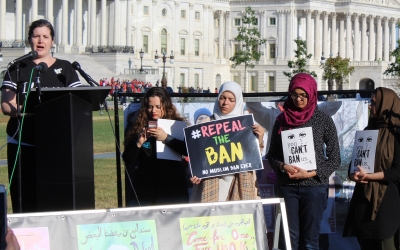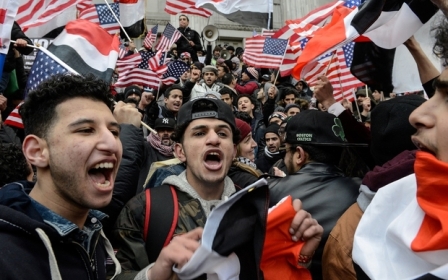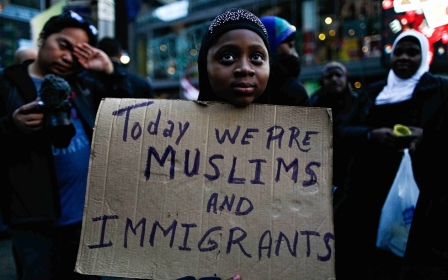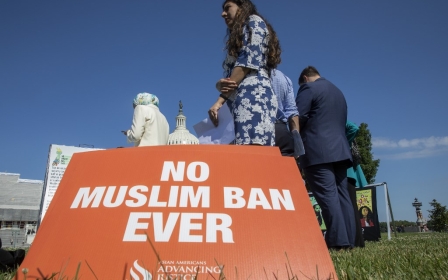US suspends diversity visas for Sudanese nationals under new travel ban

The US has said it will ban nationals from Sudan and Tanzania from participating in the diversity visa lottery scheme, as it added six countries to its growing list of nations facing stringent travel restrictions.
Each year, the State Department randomly selects people from around the world for up to 55,000 'diversity visas'. President Trump has repeatedly criticised the process which is available for applicants from countries with low rates of immigration to the US.
The Trump administration also said on Friday that it was suspending the issuance of visas that can lead to permanent residency for nationals from four countries: Nigeria, Eritrea, Myanmar and Kyrgyzstan.
'The Muslim Ban expansion is about one thing: weaponising anti-Muslim bigotry for political gain'
- Farhana Khera, executive director of Muslim Advocates
The new restrictions are set to take effect on 21 February and will apply only to new visa applications, the administration said. Immigrants who were issued valid visas before that date will still be able to move to the US.
Rumours have swirled for weeks about a potential new ban, and initially Belarus was considered. But as Secretary of State Mike Pompeo headed to the Eastern European nation on Friday, Belarus was not on the list.
New MEE newsletter: Jerusalem Dispatch
Sign up to get the latest insights and analysis on Israel-Palestine, alongside Turkey Unpacked and other MEE newsletters
The six countries will join a list of seven nations that have faced significant travel restrictions under President Trump's original travel ban, which was issued in his first week in office in January 2017.
That executive order barred nearly all immigrants and travelers from Muslim-majority countries: Iran, Libya, Somalia, Syria and Yemen, as well as Venezuela and North Korea.
In 2018, following a myriad of legal challenges against the travel ban, the Supreme Court upheld the third version of it.
'Monument to cruelty'
Rights groups have said the new travel restrictions show the Trump administration's discriminatory attitude towards Muslims.
In 2015, while Trump was campaigning for president, he called for "a total and complete shutdown of Muslims entering the United States".
Three out of the six countries in the new list have Muslim majority populations, including Nigeria which has a slight majority of Muslims, 51 percent. Meanwhile, Eritrea and Tanzania have sizeable Muslim minorities.
"The Muslim Ban expansion is about one thing: weaponising anti-Muslim bigotry for political gain," Farhana Khera, the executive director of the rights group Muslim Advocates, said in a statement.
"This expanded Muslim Ban is a monument to cruelty that tells the world that we do not believe in religious liberty and equal protection," she added.
Acting Homeland Security Secretary Chad Wolf said US was curbing legal immigration from the six countries due to their failure to meet security and information-sharing standards.
The problems Wolf cited ranged from sub-par passport technology to a failure to sufficiently exchange information on terrorism suspects and criminals.
"These countries, for the most part, want to be helpful," Wolf said in a phone call with reporters on Friday, "but for a variety of different reasons simply failed to meet those minimum requirements that we laid out."
Wolf added that the restrictions placed on the countries in the current travel ban will remain in place.
In Congress, House Democrats are set to vote on the No Ban Act, which aims to reverse the effects of Trump's travel ban. Yet, the measure is unlikely to pass in the Republican-controlled Senate.
Middle East Eye delivers independent and unrivalled coverage and analysis of the Middle East, North Africa and beyond. To learn more about republishing this content and the associated fees, please fill out this form. More about MEE can be found here.





